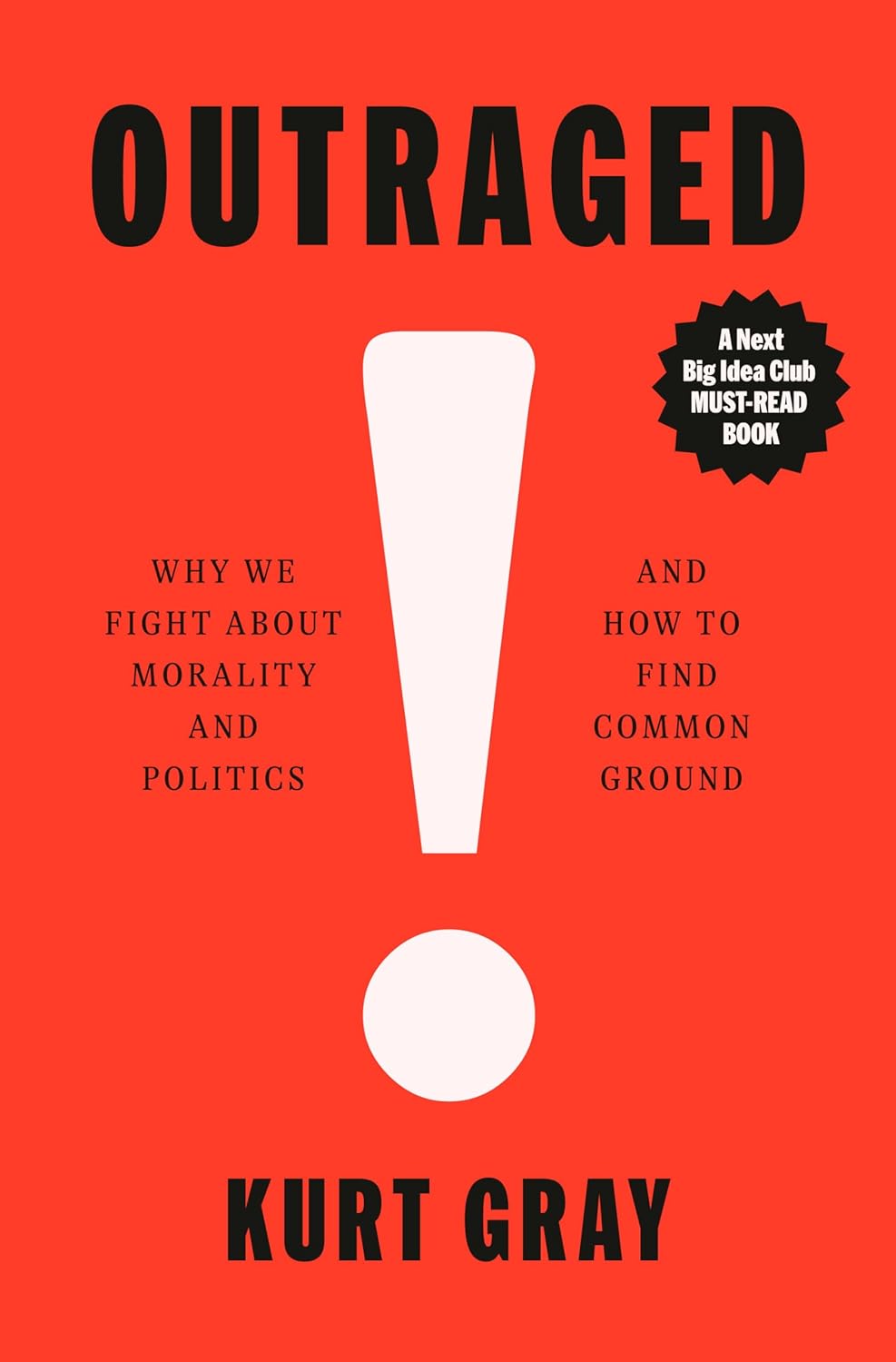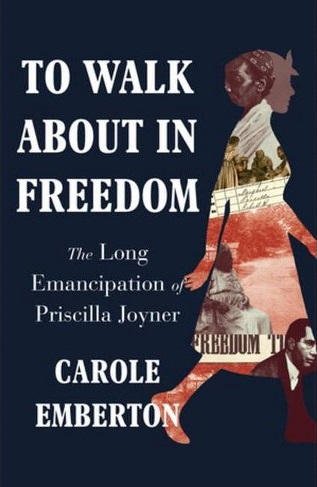Outraged: Why We Fight About Morality and Politics and How to Find Common Ground
- By Kurt Gray
- Pantheon
- 368 pp.
- Reviewed by Michael Maiello
- January 15, 2025
Our judgment comes from a fear of being eaten? Sounds reasonable.

In December, a Manhattan jury acquitted Marine veteran Daniel Penny of criminally negligent homicide. He’d been charged with killing Jordan Neely, a homeless man on the subway who was threatening other passengers. New Yorkers sorted themselves into those who believed Penny was a brave Samaritan and those who saw him as a careless murderer. A few weeks later, Luigi Mangione allegedly shot and killed United Healthcare CEO Brian Thompson in Midtown Manhattan. Business and political leaders were aghast (and maybe a bit afraid) when significant online reaction supported the accused daytime murderer, a sentiment that spread even to “Saturday Night Live.”
“All of people’s moral judgments are fueled by intuitively perceived harm,” social psychologist Kurt Gray writes in Outraged, summarizing decades of work about how we moralize. When Gray says “all,” he means it. Without exception.
Outraged is a great “idea book” that exposes readers to archeology, anthropology, philosophy, psychology, behavioral finance, game theory, and more in service of its argument. Gray’s multidisciplinary expertise and erudition create an elevated reading experience, and the author is clearly passionate about his cause — which is not to make people agree but to help them become less disagreeable.
By distilling the origin of our moral judgments down to a single psychological factor, Gray hopes to show that even very divided people share common ground. Those on the other side aren’t crazy or evil, they just interpret harm differently. And if we realize we’re all operating on the same continuum of harm, we can respect each other even if we’ll never see eye-to-eye on, say, taxation or transgender rights.
Gray roots his argument in evolutionary biology. We mostly live with the myth of humans as the world’s apex predator, which has been mostly true for thousands of years (as we see in Bronze Age tales, like when God gives the first humans “dominion” over all the planet’s animals in the Book of Genesis). But the Bible is about 1 day old in evolutionary terms. The homo sapiens brain evolved from our hominid ancestors, so we have to look at conditions 300,000 — not 3,000 — years ago to draw conclusions about what fundamentally makes us tick.
Hominids were not apex predators, outfoxing other animals and hunting for food with stone tools. The fossil record shows that they were food for the true top predators, including saber-toothed tigers, wild dogs, and even enormous eagles that snatched and devoured children. Our brains evolved to protect us from such sudden harms, and those impulses are still with us, even as society and technology have made us safer.
When humans organized into collectives, they gained huge advantages over other animals, turning potential predators into prey. But living together also gives individuals the opportunity to prey on each other, so our brains’ ability to detect harm necessarily turned inward. We soon developed moral ideas and codes to keep society together, stop people from freeloading, and protect individuals from potential predators among us.
But we don’t always agree about what’s harmful. It might seem intuitive that we all know murder is wrong, but the mixed reactions to CEO Thompson’s killing suggest otherwise. Harm exists on a continuum and within individual sets of beliefs. In that sense, says Gray, there are no “harmless” acts from a moral standpoint. He documents this through anecdotes and experiments, but if you’ve ever told somebody to simply not watch, read, or listen to something they find offensive, you already know they’ll come up with dozens of reasons why that’s not good enough.
Here, you see Gray’s principle at work. Your moral stance is that censorship harms society, so the person objecting to particular material just shouldn’t engage with it. But their moral stance is that the material harms society more than censoring it would. There’s a practical impasse, yes, but at least, says Gray, we can understand that we’re all coming from the same general place. You want to protect society from censorship. They want to protect society from foul content. Recognize that mutual interest in protecting society, and maybe we can lower the volume.
Gray’s goal is to tamp down the hostile rhetoric, not to solve disagreements or win arguments. When we recognize that our opponents are sincere and that we share a common way of thinking, we can hopefully be respectful and forgiving. We can share stories of harm from our perspective — rather than argue facts — to find paths toward collegial disagreement. Harm is subjective, he writes, and broadly defined, but it’s always on our minds. And if we know it’s the sole driver of our moral judgment (and an involuntary one at that), we can approach our differences with empathy.
Of course, assuming sincerity seems naive in a world driven by greed, money, power, and a willingness to use the language of morality to attain them. Was George W. Bush motivated to invade Iraq by fear of harm, or did he use harm-based arguments to garner support for his war of choice? Did Barack Obama really oppose same-sex marriage for years, believing it would cause the societal harm other opponents claimed, only to change his mind when it became politically safer? And is a banker who argues against forgiving the mortgage of a struggling homeowner really motivated by the existential harm of moral hazard?
There’s a lot of good-faith reasoning in Outraged, but Gray has set himself an impossible task by claiming to have found the one, true answer to our endless acrimony. Sometimes, people really are just out for themselves.
Michael Maiello is an author, journalist, and playwright. He worked for 10 years as a writer and editor at Forbes, and his work has appeared in McSweeney’s, the New Yorker, the New York Times, and other publications. Find his free Substack here.
.png)
